I'm parsing a JSON file on an iPad which has about 53 MB. The parsing is working fine, I'm using Yajlparser which is a SAX parser and have set it up like this:
NSData *data = [NSData dataWithContentsOfFile:path options:NSDataReadingMappedAlways|NSDataReadingUncached error:&parseError];
YAJLParser *parser = [[YAJLParser alloc] init];
parser.delegate = self;
[parser parse:data];
Everything worked fine until now, but the JSON-file became bigger and now I'm suddenly experiencing memory warnings on the iPad 2. It receives 4 Memory Warnings and then just crashes. On the iPad 3 it works flawlessly without any mem warnings.
I have started profiling it with Instruments and found a lot of CFNumber allocations (I have stopped Instruments after a couple of minutes, I had it run before until the crash and the CFNumber thing was at about 60 mb or more).

After opening the CFNumber detail, it showed up a huge list of allocations. One of them showed me the following:

and another one here:

So what am I doing wrong? And what does that number (e.g. 72.8% in the last image) stand for? I'm using ARC so I'm not doing any Release or Retain or whatever.
Thanks for your help. Cheers
EDIT: I have already asked the question about how to parse such huge files here: iPad - Parsing an extremely huge json - File (between 50 and 100 mb)
So the parsing itself seems to be fine.